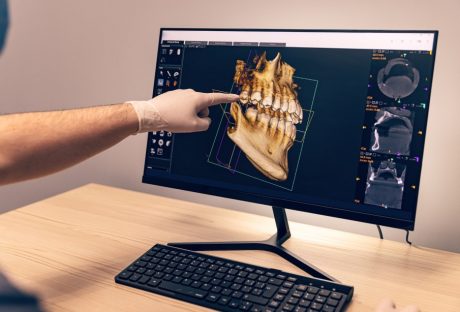The title “physician assistant” may evoke images of someone whose job it is to run professional errands for doctors to someone with little knowledge of the health sector. Physician assistants (PAs), however, are highly skilled individuals who are authorized to diagnose, track, and provide medication to patients.
Though the responsibilities of PAs and doctors frequently overlap, the degree of autonomy that each enjoys at work varies. Although PAs normally require a doctor’s supervision to treat patients, doctors are legally permitted to practice independently.
There are other options for pursuing an advanced career in healthcare besides attending medical school or nursing school, as evidenced by the growing demand for PAs.
This article covers the steps involved in becoming a physician assistant, as well as typical specializations, salary ranges, and employment prospects for this field.
How Long Does It Take To Become A Physician Assistant?

Are you interested in becoming a physician assistant? Do you know how to become a pa? Are you wondering how long does it take to become a pa? Did you just google “What bachelor degree do I need for physician assistant?” This article will explain everything to you in detail.
Who Is A Physician Assistant?

Physician assistants, or PAs for short, are certified medical professionals who assist doctors in delivering care. They provide care as well as keep an eye on the health of patients alongside doctors.
While some states permit physician assistants to operate autonomously, the majority mandate that they remain under the direct supervision of physicians. PAs perform physical examinations, write prescriptions for medication, and administer tests. Additional duties for PAs are as follows:
- Obtaining the medical histories of patients
- Placing as well as evaluating diagnostic test orders
- Assisting with medical operations
- Directing patients to appropriate experts
- Creating therapy programs
- Offering patients preventive care advice
- Track the advancement of your patients.
- Carrying out clinical research
Physician assistants are employed in a variety of locations, including surgery rooms, outpatient clinics, hospitals, and doctor’s offices. In addition to working in medical settings, PAs are employed by military institutions, sports teams, and educational institutions.
The majority of PAs have full-time jobs with flexible schedules that sometimes include weekends and holidays. Similar to physicians, they might have to work long shifts on short notice and be on call. PAs should be physically fit and have strong interpersonal skills because spending hours interacting with patients and coworkers can get tiresome.
How To Become A Physician Assistant?

Here are the steps to take before you can become a physician assistant.
Get Your Bachelor’s Degree
Getting a bachelor’s degree from a recognized university is the prerequisite for working as a physician assistant. Applications from a variety of backgrounds are usually accepted into PA programs, but a science-focused major is advised as it will enable you to apply undergraduate credits toward your PA requirements.
Acquire Patient Care Or Healthcare Experience (PCE) (HCE)
Prior to applying to graduate school, prospective physician associates (PAs) are advised by the American Academy of Physician Associates to obtain experience in healthcare or patient care. HCE describes employment, whether paid or unpaid, in which you may still interact with patients but are not directly in charge of their care. PCE, on the other hand, necessitates direct patient treatment.
At least 1,000 HCE or PCE hours are needed for most PA programs, and these hours are normally obtained after working in the health industry for about a year. A medical technician, paramedic, surgical assistant, dental assistant, hospice worker, physical therapy assistant, and phlebotomist are among the positions that satisfy the need for clinical experience.
Enroll In A PA Program With Accreditation
You can acquire the advanced knowledge required to pass the national certification exam and start working as a physician assistant by enrolling in a PA graduate program. Clinical anatomy, clinical therapeutics, histology, as well as medical principles are among the subjects covered in a PA program. Additionally, you might participate in clinical rotations or clerkships, which entail observing certified PAs.
For those who cannot attend in person, several colleges offer online PA programs. Concentrations are a common feature of these PA programs, enabling students to customize their degrees to meet their professional objectives. Moreover, geriatrics, family medicine, women’s health, pediatrics, psychiatry, and general internal medicine are among the common specialties of PAs.
Through the Centralized Application Service for Physician Assistants (CASPA), students can submit their admissions applications. PA applicants must submit HCE and PCE records, college transcripts, recommendation letters, resumes, and personal statements to CASPA.
Before applying, make sure the Accreditation Review Commission on Education for the Physician Assistant (ARC-PA) has approved the program of your choice.
Obtain Certification
Graduates from ARC-PA-accredited programs are eligible to take the Physician Assistant National Certifying Examination (PANCE). The National Commission on Certification of Physician Assistants (NCCPA) is responsible for administering the exam.
The PANCE is a five-hour multiple-choice test designed to evaluate candidates’ knowledge of medicine and surgery. To obtain a PA license in any state in the United States, one must pass the PANCE. States may have different requirements for other particular licenses.
How Long Does It Take To Become A Physician Assistant?

Usually, it takes at least seven years to finish all of the steps above. You will need four years to complete your undergraduate studies, followed by a year to obtain experience in healthcare and two years to finish a PA program. If you need more time to study for and pass the PANCE, or if you want to gain experience when moving from undergrad and grad school, then the path to becoming a PA may take longer.
Salary Of A Physician Assistant

As of May 2022, the U.S. Bureau of Labor Statistics (BLS) reported that the median annual salary for physician assistants was $126,010. The industry, degree of experience, and place of residence all affect an individual’s compensation.
Certain regions of the United States, such as Connecticut, New York, North Carolina, Nebraska, and Montana, have the highest concentrations of physician assistant jobs, putting them in great demand. According to BLS projections, employment for these professionals will grow by 28% between 2021 and 2031, which is nearly six times the projected growth rate for all U.S. jobs and three times the projected job growth rate for other health practitioners nationwide.
Specializations

Similar to nurses and clinicians, physician assistants can choose to specialize in different areas of healthcare based on their areas of interest as well as strengths. Moreover, the types of patients PAs work with, as well as the range of salaries they can earn, depend largely on their specializations.
The majority of PA programs provide elective courses and some mandate that students finish supervised clinical practice across several specializations. Before starting graduate school, we advise you to select your PA specialization so that you can enroll in a program that offers comprehensive instruction in your field of interest.
Here are some typical specializations for PA professionals and students.
Emergency Practice
In this specialization, PA aspirants learn how to assess, stabilize, and treat patients with life-threatening conditions. Students specializing in emergency medicine also gain skills for collaborating with urgent care teams and for presenting cases to physicians.
Pregnancy And Gynecology
PA students who choose this concentration will graduate with a thorough understanding of childbirth, midwifery, and the female reproductive system as a whole. They get training in giving women prenatal and postpartum care as well as family planning counseling.
Pediatrics
By providing ambulatory care for infants and children, pediatric PAs assist pediatricians. Students specializing in the pediatrician field gain the ability to assess typical pediatric issues, provide prophylactic care, and explain treatment regimens to patients’ guardians.
Surgery
PA students can assess and oversee surgical patients through the surgery specialization. They gain knowledge on how to care for surgical patients both before and after surgery.
Mental Wellness
The treatment and support of patients dealing with mental health issues is the main focus of this specialization. Students in this specialty gain knowledge on how to perform mental assessments, track patients’ progress, as well as recommend individuals to behavioral health professionals.
Certifications
Furthering your experience, profile, as well as career certifications helps you gain credibility. Here are a few you can check out.
PA-C
The primary certification for PAs is the Certified Physician Assistant (PA-C) credential, for which you must pass the Physician Assistant National Certifying Examination. Three hundred multiple-choice questions, given in five blocks of sixty questions each, make up the five-hour PANCE exam. Between sessions, candidates can take 45-minute breaks.
Those who wish to take the PANCE must complete a program approved by the ARC-PA before taking it. Potential PAs have 180 days from the date of graduation to apply for the exam; however, they can only take the test beginning seven days later. After submitting an application and paying a $550 fee, NCCPA will email you an acknowledgment along with more details.
Additional Qualifications
NCCPA provides optional credentials for ten PA specialties in addition to the PA-C:
- Cardiovascular and thoracic surgery
- Dermatology
- Emergency medicine
- Hospital medicine
- Nephrology
- Orthopedic surgery
- Pediatrics
- Palliative medicine and hospice care
- Psychiatry
- Obstetrics and Gynecology
These qualifications are known as certificates of additional qualifications, or CAQs. They give PAs credit for their specialized knowledge.
Professional Organizations
While it’s not necessary, becoming a member of a professional organization can help PAs become more credible and open up more career development opportunities. The two professional associations that were established to aid physician assistants are highlighted below.
The American Academy of Physician Assistants (AAPA) is the preeminent national organization for PA professionals. It was established in 1968. It encompasses more than 168,000 PAs in each of the 50 US states. The AAPA gives its members the tools they need to grow professionally and enhance patient care.
Physician Assistant Education Association (PAEA) is the national organization for PA education. It helps academic programs attract and hold onto talented faculty members and PA students. Additionally, it offers a range of study resources for PA certifications.
Wrapping Up
Additional motivations to become a physician assistant include demand, high pay, work-life balance, autonomy, and job security. If you have the desire and passion to become a PA, then the amount of time it takes is unimportant. Your clinical experience and self-assurance will enable you to lead health care forward and improve patient health and well-being with the Physician Assistant Studies Program.
If you have thoughts to share or questions to ask how long does it take to become a physician assistant, then please leave a comment below. We would love to hear from you!
Learn More About:
- The Future Of Healthcare: Adapting To An Aging Society
- Healthcare Jobs That Will Be Most In Demand 2020–2025
- Is Medical Specialities A Good Career Path? – 12 Best Jobs























